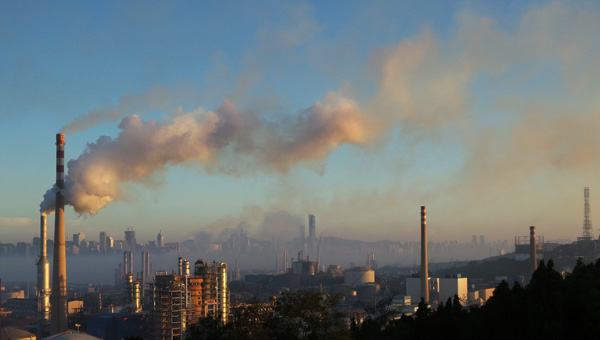 |
|
Updated technologies are needed to give the public a better way of supervising emissions. [Photo/China Daily] |
The same month saw the release of another pollution app called ecosnapp, which has been downloaded more than 700,000 times in the past seven months, said Liu Guozheng, secretary-general of the China Forum of Environmental Journalists, which developed the app.
Basically, apps split into two types: The first simply provide basic information, while the others allow users to interact to track and identify polluters. For example, most smartphone weather forecast apps provide real-time air quality data, and some-such as TEDA, supplied by the Teda Eco Center, a green NGO in Tianjin-also contain details of official government policies and other information about the environment.
Others, such as ecosnapp, belong to the interactive group, and allow users to upload details such as time, location, and sources of pollution as photos and video clips, and forward them.
Long way to go
Despite the rapid expansion of environmental information apps, simply making data about emissions accessible to the public will not be enough to overcome entrenched resistance to cleaning up the pollution, Ma Jun said.
Many of the worst polluters are State-owned companies, or those that have influence and close ties with local governments through the large amounts of tax they pay. Although many have been frequently exposed as polluters, they feel no compunction to stop, and continue to discharge unacceptably high levels of polluted emissions, he said.
It's not unusual to see companies that promised to stop polluting the environment within a certain time continuing well past the deadline.
Meanwhile, although the apps give the public access to the data, nothing will change until the authorities begin to act promptly.
"We have received more than 330 cases from users," Liu of the China Forum of Environmental Journalists said. "But none of the complaints sent to the authorities have been investigated. That's the problem with mobile apps-although they allow concerted public action, their power is limited.
"We have shared the codes of our official accounts, allowing governments and environmental protection bureaus access to every case," he said, adding that simply submitting the information will not force local authorities to investigate offenders.
Fang was in agreement. Although he was pleased with the result of his complaint to the officials in Anhui, he said it took two months for them to contact him, and many other facilities he has reported in the same neighborhood are still emitting pollutants.
Contact the writer at [email protected]
